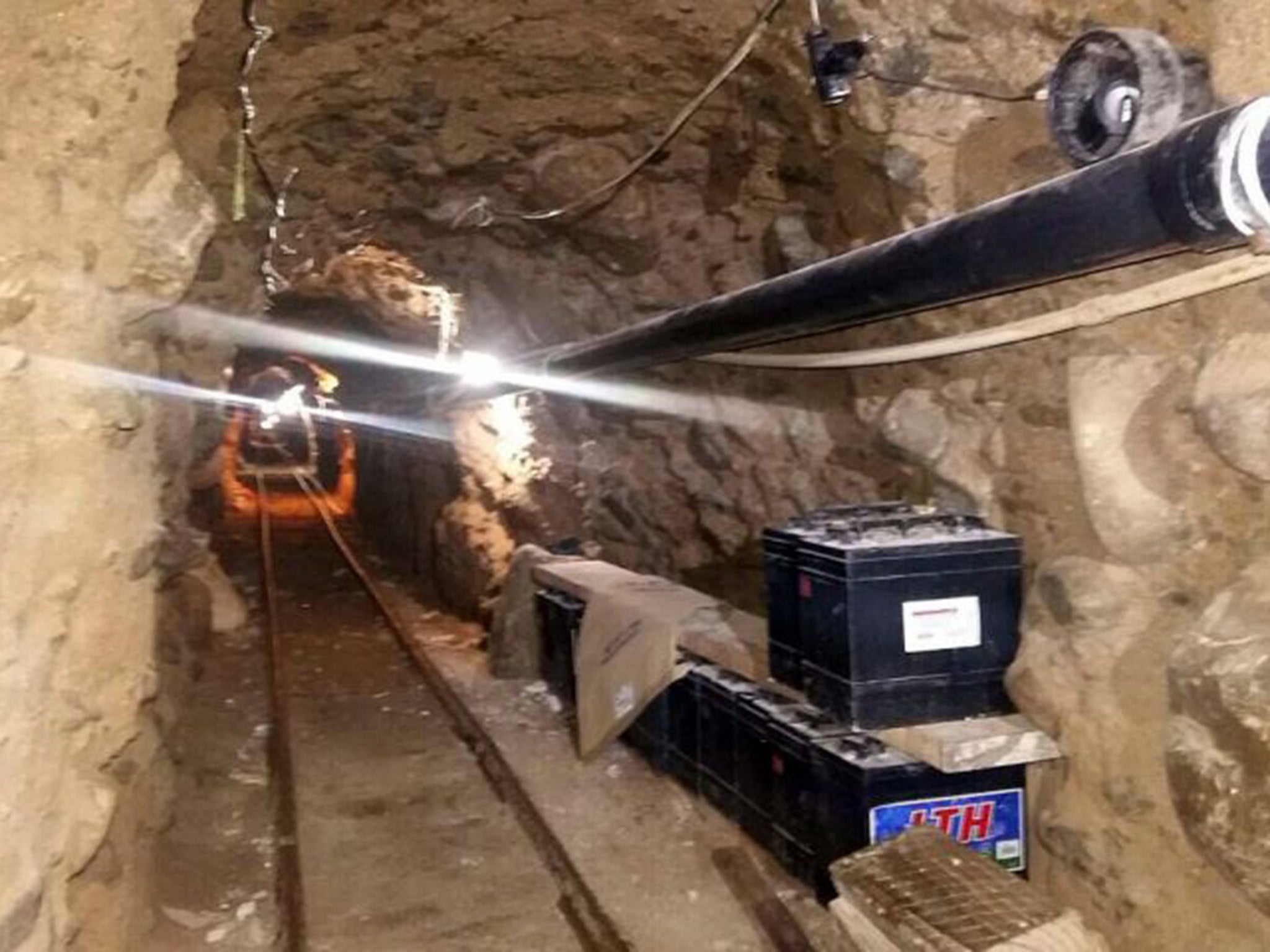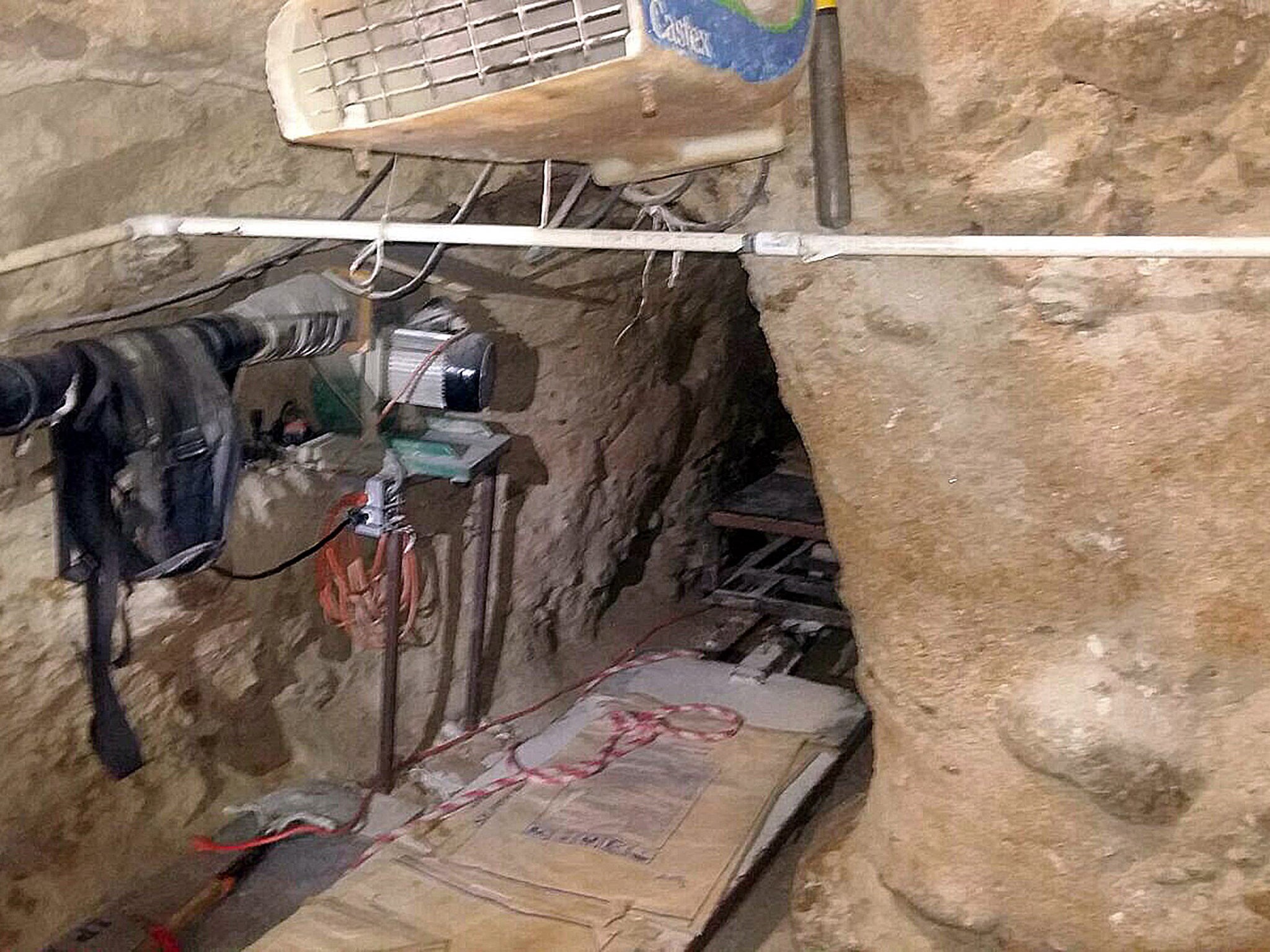Police discover underground tunnel used to transport drugs by rail across US-Mexico border
The passage is believed to be one of the longest ever built beneath the border and is thought to have been constructed for the notorious Sinaloa cartel, which controls the region’s drug trade

Your support helps us to tell the story
From reproductive rights to climate change to Big Tech, The Independent is on the ground when the story is developing. Whether it's investigating the financials of Elon Musk's pro-Trump PAC or producing our latest documentary, 'The A Word', which shines a light on the American women fighting for reproductive rights, we know how important it is to parse out the facts from the messaging.
At such a critical moment in US history, we need reporters on the ground. Your donation allows us to keep sending journalists to speak to both sides of the story.
The Independent is trusted by Americans across the entire political spectrum. And unlike many other quality news outlets, we choose not to lock Americans out of our reporting and analysis with paywalls. We believe quality journalism should be available to everyone, paid for by those who can afford it.
Your support makes all the difference.Police in Mexico and the US have uncovered an 875-yard drug-smuggling tunnel linking the Mexican city of Tijuana to San Diego in California, seizing 12 tons of marijuana and arresting 22 people in the process.
The passage, believed to be one of the longest ever constructed beneath the US-Mexican border, and connecting two warehouses in the neighbouring cities, is approximately 10m underground. It has lighting, ventilation and a rail system to move loads from one end to the other. It is said to have been built for the Sinaloa cartel, which controls the region’s drug trade.

Sinaloa boss Joaquin “El Chapo” Guzman escaped from a maximum security Mexican prison in July, apparently via a tunnel almost a mile long that led from his cell to a nearby warehouse.
The simultaneous raids on the tunnel’s two entrances were reportedly the climax of a six-month investigation. According to US law enforcement, an undercover agent for the Department of Homeland Security had told the smugglers he would furnish them with a warehouse and transportation if they paid $10,000 (£6,515) per truckload of drugs he moved. When Mexican federal police arrived at the warehouse, they detained the suspects “without firing a single shot”, the country’s National Security Commission said.
The tunnel is thought to have been newly operational. “We see a super tunnel open for business once every year or so,” said Laura Duffy, the US Attorney for Southern California. “Just when they think they’re ready to move, we put it out of business.”

The passage uncovered on Wednesday was the 10th such tunnel found in the area since 2006; several featured electric rail cars and hydraulic lift mechanisms. Smugglers supposedly prefer to tunnel to California than to Arizona, as south-California soil is firmer and needs less support.
We see a super tunnel open for business once every year or so. Just when they think they’re ready to move, we put it out of business
Most of the passages under the border were built by Guzman’s cartel, past masters at the craft of tunnel-building. Guzman, who has been on the run since his escape in July, came close to recapture this month after he was spotted by Mexican special forces near Cosala, a town in the mountains of his home state, Sinaloa. Authorities believe he broke his leg after falling off a small cliff as he fled his pursuers.
The suspects arrested in the cross-border raids told police they were working for an organised crime group from Jalisco state, home to the notorious Jalisco New Generation cartel, a ruthless group allied to the Sinaloa cartel.
Join our commenting forum
Join thought-provoking conversations, follow other Independent readers and see their replies
0Comments